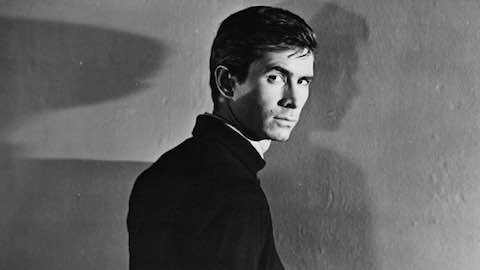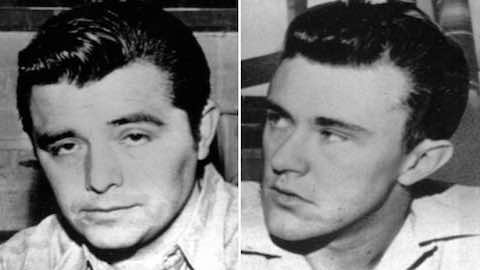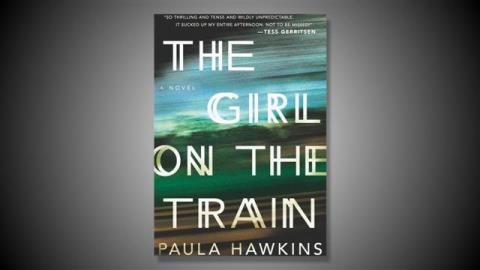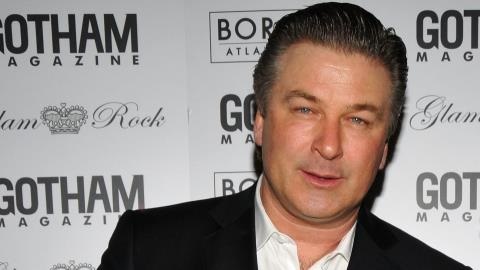- MENU
- HOME
- SEARCH
- WORLD
- MAIN
- AFRICA
- ASIA
- BALKANS
- EUROPE
- LATIN AMERICA
- MIDDLE EAST
- United Kingdom
- United States
- Argentina
- Australia
- Austria
- Benelux
- Brazil
- Canada
- China
- France
- Germany
- Greece
- Hungary
- India
- Indonesia
- Ireland
- Israel
- Italy
- Japan
- Korea
- Mexico
- New Zealand
- Pakistan
- Philippines
- Poland
- Russia
- South Africa
- Spain
- Taiwan
- Turkey
- USA
- BUSINESS
- WEALTH
- STOCKS
- TECH
- HEALTH
- LIFESTYLE
- ENTERTAINMENT
- SPORTS
- RSS
- iHaveNet.com: Books
-
'The Divide: American Injustice in the Age of the Wealth Gap' is a volume of stories. The thesis: this country has evolved a two-tier justice system under which some of us are fair game for aggressive policing, while others are 'too big to jail'
-
Steve Bantu Biko was only 31 when South African Security policemen killed him on September 12, 1977. Yet Biko's significance stretches far beyond his short life and the brutality of his death. He was, and is, hailed for his role in developing Black Consciousness
-
A selection of fiction and non-fiction World War I books from Chatham House
-
'The French Kitchen Cookbook: Recipes and Lessons from Paris and Provence', Patricia Wells' latest cookbook, reflects upon her years as a cooking instructor, her relationships with students, and her appreciation of shared meals
-
Just as they say that the poor are always with is, so it is with Richard Nixon, arguably the most tormented American president, who comes back to us in the new book 'Ike and Dick' (appropriately subtitled 'Portrait of a Strange Political Marriage')
-
So you think crime novels are simply whodunits? If that's the case, then you are not paying close enough attention to the text. Among the rising body count, you may be missing incisive socioeconomic and political guides to the writer's home country
-
You've read Henning Mankell and Stieg Larsson, but here are other European crime writers to look out for
-
Rosheen Kabraji's reading list on Pakistan -- The Reluctant Fundamentalist, Cracking India, In Other Rooms Other Wonders, Instant City: Life and Death in Karachi, Quiet Diplomacy: Memoirs of an Ambassador of Pakistan, Kartography
-
From a look at the events that led to the global recession to the tale of the woman behind much of the leading biomedical research, the following books reveal the power of words to define and transform reality
-
In early 2009, Vali Nasr, one of America's greatest experts on Shia Islam and Iran, was asked by Richard Holbrooke to join his team. This book is the fruit of Nasr's time working with Holbrooke -- one of the greatest American diplomats
-
Book Reviews of Freakonomics; What Money Can't Buy; Thinking About Crime; Nudge: Improving Decisions about Health, Wealth, and Happiness; and The Tipping Point: How Little Things Can Make a Big Difference
-
Finding the perfect gift for the cook or food lover in your life can be overwhelming. For one thing, there are so many things to choose from. Here's a handful of books and other foodie gifts to help you focus your choices
-
Gary L. Rashba's 'Holy Wars, 3000 Years of Battles in the Holy Land' illuminates those major battles that shaped this part of the world for three millennia
-
A look at Jonathan Wright's latest reading list on Iraq
-
History may judge Hamid Karzai more kindly, whether Afghans who depict him as a stooge of foreign infidels, or foreigners who accuse him of being an unreliable partner. Unlike Shah Shuja, his agility and performance may be more appreciated once he relinquishes power
-
The author of The Plots Against the President discusses the paranoia that both Roosevelt and Obama face
-
The word retirement needs reinvention, especially in our post-crash economy. For anyone approaching this profound life transition, the first challenge is one of orientation -- where to start. Here's my roundup of favorite books on re-thinking retirement
-
Each year, hundreds of food and cookbooks cross my desk. I always look forward to sharing my favorites with readers during the holiday gift shopping madness. I know how tough it can be to search out that perfect present for the cook on your list. Here are a few of my picks for various types of cooks
-
Thomas Jefferson and James Madison formed a political alliance that led to the two-party political system, religious liberty, and the Louisiana Purchase. Isenberg and Burstein explore the complicated interactions between the Founding Fathers who became the third and fourth presidents. Here's the impact on the American political system today
-
Before Thomas Jefferson, Benjamin Franklin, and John Adams signed the Declaration of Independence, everyday farmers were already banding together, ready to take on tyranny. These lost heroes, their stories scattered among letters and diaries for more than 200 years, come to life in American Insurgents, American Patriots: The Revolution of the People by historian T. H. Breen
-
From suicide bombers to the average American voter, most humans believe their decisions are based on sound judgment and core values. Yet, according to Washington Post columnist Shankar Vedantam, much of everyday decision making is rooted in assumptions that lie outside the realm of awareness.
-
If you want to refresh yourself on Barack Obama's talents at organizing and leading and inspiring, you must sit down right now and read the book of the moment -- 'Game Change' by Mark Halperin and John Heilemann. There, laid out for all to follow, is the story of Obama's incredible rise to the top and how he overcame the forces of intolerance and old-fashioned thinking.
-
Tired of hearing about Tiger Woods and Mark Sanford? Historian Thomas Fleming has a few new names to add to the list of America's most famous playboys, including Benjamin Franklin, Alexander Hamilton, and George Washington. Fleming exposes the little-known tales of the country's early figures in his latest book, The Intimate Lives of the Founding Fathers.
-
A new book asks the question in the title, Why We Love Dogs, Eat Pigs, and Wear Cows, and then attempts to supply answers from a psychological perspective. Author and psychologist Melanie Joy has some pretty surprising answers to that question
-
Until the votes were cast, the 1980 election was too close to call, with polls showing President Jimmy Carter leading Republican challenger Ronald Reagan. The former actor won comfortably, marking the conservative political ascendancy. Craig Shirley recently chatted with Robert Schlesinger about pivotal elections, today's GOP, and how close Reagan came to losing.
-
John Robbins wants to help replace our culture of excess with 'more of a high-joy culture.' Says Robbins, 'We can actually have a higher quality of life even though we may have a lower standard of living.' Robbins urges us to shift our definition of success. To do that, Robbins recommends making lifestyle changes. Here are some of his suggestions
-
Whether for information on training adopted dogs, an entertaining read about one perpetually bad dog, or the touching story of blind cat, here are half a dozen fall reading choices for adults, and some books for younger animal lovers
-
Although warnings that water crises, even water wars, are pending have a long history -- and a long history of being overblown -- there are increasing signs that the management of water resources worldwide is now reaching a tipping point.
-
There is no end to the writing of books, said the author of Ecclesiastes, and today he could have said it of translations of the Bible. Now there are translations not just for every denomination and generation but for every class, sex and age -- men, women, young people, conservative, liberal or neither . . . .
-
Science is advancing at a rate so fast that it is difficult to forecast where it will take us. According to Michael Specter, this uncertainty has developed into a widespread fear or denial of scientific progress across the nation. Specter identifies why Americans have grown to mistrust science. He recently chatted with Jessica Rettig about the dangers of resisting vaccines and the value of preventative healthcare
-
The 2nd Battalion of the 16th Infantry Regiment, 1st Infantry Division -- the 2-16, as it's called -- spent 15 months in 2007 and 2008 in one of the toughest areas of Baghdad at the height of the surge. David Finkel chronicles their story in The Good Soldiers
-
Plouffe's book arrives at a crossroads moment for the administration -- exactly one year after the election, and one year before the 2010 midterms. A lot has happened in that year, as the audacity of winning has given way to the timidity of governing.
-
Howard Clark's answer is to both amplify the nihilism of its message and promote moderate Islamic voices. Clark, a former marine who served two tours in Iraq, now works as a consultant on counter-terrorism problems for the Department of Defense. He is also president and founder of Seventh Pillar, a nonprofit that seeks to combat al Qaeda's ideology. He recently spoke about his three-part plan for strengthening moderates and defeating extremists
-
The same forces that have held much of the Muslim East in thrall now are reaching out to dictate to the West, too. And they've found a willing accomplice in Yale University, which has decided to publish 'The Cartoons That Shook the World' by Prof. Jytte Klausen without including the principal reason for it -- the controversial cartoons that Danish newspapers published in 2005 and early 2006 that so enraged mobs throughout the Muslim world. Here, you would think, ...
-
Author and commentator Barbara Ehrenreich sympathizes in her book Bright-sided: How the Relentless Promotion of Positive Thinking Has Undermined America
-
Among the latest crop of new baking books, the hands-down winner is undoubtedly 'Warm Bread and Honey Cake, Home Baking from Around the World,' by Gaitri Pagrach-Chandra
-
The fall of the Berlin Wall was a conclusive sign that the United States and the other Western democracies had finally won the Cold War. In the end, two presidents deserve much of the credit: George H.W. Bush and Ronald Reagan. Twenty years later there are plenty of lessons for President Obama's approach to foreign policy.
-
Sarah Palin's cathartic tome may be flying off the shelves, but the best political book in years by far is 'The Audacity to Win,' the inside account of how Barack Obama won the presidency, written by one of the two chief architects of that historic achievement, campaign manager David Plouffe.
-
A selective reading list of books on West Africa from Chatham House
-
The global economic recession? It is a misnomer. The new world is becoming wealthier as the old world declines amid greed, joblessness and rancour. This is the theme of Kishore Mahbubani's 'The Great Convergence' and Andrew Simms' 'Cancel The Apocalypse'
-
'A Dangerous Delusion: Why the West is Wrong about Nuclear Iran' is a small, short book that enters what Peter Oborne and David Morrison call 'a plea for sanity' over the Iranian nuclear issue
-
In a book that is an absorbing mixture of memoir, reportage and investigation, Jonathan Katz tries to find out how the global relief effort backfired so badly in Haiti and what happened to the money raised
-
Every year, hundreds of food books and cookbooks pass by my desk. I always look forward to sharing my favorites during the holiday gift shopping madness. I know how tough it can be to search out that perfect present for the cook on your list. Here are a few of my picks for various types of cooks
-
There comes an awe-struck moment in every modern, self-taught chef's life when he or she discovers 'The Fannie Farmer Cookbook.' In our age we take cookbooks for granted, along with the precise measurements and scientific and technical explanations they impart. But Farmer's tome was a pioneer of the genre. First published in 1896, it's currently in its 13th edition
-
The sprawling cities and suburbs of the American West would not exist as they do today without the Hoover Dam, author Michael Hiltzik says. But without the dam, they might also have been spared many problems that have come with decades of population growth.
-
It can be hard to resist sensational news, from the 'if it bleeds, it leads' priorities of local newscasts to the harangues of cable TV pundits. Veteran newsman and journalist Jack Fuller wants to know why. Fuller examines the allure of emotionally charged news and how that affects the kind of information Americans are getting today
-
Fran Hawthorne, a self-professed liberal, found herself arguing over the selling points of Whole Foods. Her friend praised the food chain's organic, green products, but Hawthorne criticized the company for being against unions and for leading to the closures of small local stores. Fran recently discusses the difficulties of living ethically in a time of heightened political awareness
-
When someone told me J.D. Salinger had died, I jokingly asked, 'How do they know?' It was dark humor and a tad disrespectful. But I was trying to be complimentary. Salinger, who was even more passionate about his privacy than his writing, had managed, at age 91, to die a legend in both areas.
-
Think back to 1967. The job you have today may not even have existed. The Internet, and all the jobs that have come with it, were decades away. The Detroit automakers were dominant. Quality of life was different, too. The lifestyle of the average American may change just as much from 2010 to 2050 as it did from 1967 to 2006. The economy will especially undergo change.
-
Searching for last-minute gifts? How about books for your pet-loving friends and relatives, or maybe as presents to yourself? Here are some suggestions:
-
A Reading List for the Twenty-first Century
-
Frank Sinatra is the subject of a massive, fascinating new biography, 'Frank: The Voice,' written by James Kaplan. The book is interesting for several reasons. For one thing, author Kaplan is a real music fan, and has an instinctive understanding of singers, singing and Sinatra's once-in-a-lifetime talent in particular
-
The success of online shoe retailer Zappos has been well-documented: It went from a struggling start-up in 2000 to getting acquired by Amazon in a deal valued at $1.2 billion in 2009. The face of the company, chief executive Tony Hsieh, an avid Twitterer and successful entrepreneur even before leading the shoe company, shares the secrets to his success
-
Ever since Ronald Reagan left the White House in 1989, it has been debated whether he was indeed responsible for the collapse of the Soviet Union, or whether it just happened after his watch. In 'The Rebellion of Ronald Reagan: A History of the End of the Cold War,' author James Mann makes a persuasive case that Ronald Reagan actually played a part, intentionally or otherwise, in the Soviet Union's disintegration.
-
Avatar has been subjected to a sustained assault from many on the right as an apologia for pantheism. These criticisms hit the mark, but Avatar is not meant to be controversial and aimed at pleasing a wide audience. After all, we live in an age in which it's the norm to speak glowingly of spirituality but derisively of traditional religion.
-
Nicholas Kristof and Sheryl WuDunn argue that "the brutality inflicted routinely on women and girls in much of the world" is "one of the paramount human rights problems of this century." Their statistics are numbing: every year, at least two million girls worldwide "disappear" due to gender discrimination. But Kristof and WuDunn go beyond moral outrage.
-
The twenty-first century has been a traumatic one for journalism. Changes in how people consume news combined with the Great Recession have produced a dark era in journalism. In Losing the News, Alex Jones, addresses how the rise of the Internet and the precipitous decline in advertising have left print journalism in desperate straits.
-
I have a humble suggestion for a New Year's resolution: Join a book club. With this one step, your annual book-reading tally could shoot up. It helps make room for pleasure-reading in busy lives. Here's why plus tips for joining a book club or starting your own book club
-
The majority of Americans do not believe that the federal government is capable of major policy initiatives. After studying 75 major U.S. policy initiatives since World War II, William D. Eggers and John O'Leary wrote "If We Can Put a Man on the Moon...Getting Big Things Done in Government." Eggers discusses th book with Jessica Rettig
-
In Ashburnham, Massachusetts, a prep school has just given up on books. The headmaster of Cushing Academy, one James Tracy, doesn't see any need for them. Not any more. Anybody who's anybody or wants to be now has an iPhone with apps, a Kindle or whatever the Next Big Thing turns out to transiently be. Who needs books?
-
I want to like Sarah Palin. She's got a houseful of kids, she was one of the nation's few female governors, and she's not my father's GOP. The Republican Party is in dire need of new leadership, and I think a conservative woman would be great. So I want to root for her.
-
Going Rogue is a pretty quick read -- interesting when it comes to Sarah's personal life, but snotty the way she comments about the journalists and the campaign people
-
Vali Nasr's new book, Forces of Fortune, was written largely in the exuberant phase of Dubai's story, but it is being published in a more sober time. It reflects some of the old enthusiasm for the notion that 'the Dubai model' -- a multiethnic, capitalist society insulated from violence and ideology -- could save the Middle East from a downward spiral of intolerance and political extremism.
-
Consider catching up on reading aimed to solve problems in your career. Here some 2009 titles that fill that bill
-
Do you blindly turn to food as a source of comfort when you're feeling upset? Since emotional overeating doesn't provide any lasting satisfaction and can lead to health problems, it's far better to find other ways to deal with the stresses of daily life
-
To back up credible U.S. deterrence against a still-growing number of adversaries, Barack Obama will need to rebuild a declining military infrastructure and doctrine. Otherwise, it is likely that this country's state and sub-state enemies may increasingly dismiss American retaliatory and other threats as empty bluster and false bravado.
-
Mr. Higham is a well-known chronicler of the famous and infamous. Although he is a noted poet and has written a number of reasonably received plays, his biographies are the meat of his career. His new book -- 'In and Out of Hollywood' -- tells many dishy tales.
-
Talk about timing. With former GOP vice presidential nominee Sarah Palin readying the release of her own 432-page campaign tell-all, Going Rogue: An American Life, now would be the perfect time to pop out another Palin book, and that's exactly what Weekly Standard's Matthew Continetti has done with The Persecution of Sarah Palin
-
Thank you for turning in the manuscript so quickly. I thought only Stephen King could crank out 400 pages in four months! Seriously, there's some terrific material here, and all of us are thrilled to be publishing your life story. Before we move ahead, the fact-checking department has asked me to pass along a few notes and comments that may require some revisions on your part.
-
YOU SEE, she didn't care about being a star. She cared about living a certain way. It was what she was used to. And she lived that grand life with Burton and thought they'd have it forever. That's what was most important to her: to have a great companion in her great life ... it was all about being with him. That's all that really mattered.
-
Half the U.S. presence in Afghanistan and Iraq is made up not of soldiers, marines, and airmen but of private contractors. And although contractors are not combat troops, almost 1,800 of them have been killed since 9/11. Allison Stanger says this is a dangerous and unprecedented outsourcing of foreign policy that bodes ill for the future of the nation. Her latest book, One Nation Under Contract
-
The growing frequency of presidential speeches has necessitated staffs of White House writers to help presidents craft their messages. For Matt Latimer, writing speeches for President George W. Bush during the last two years of his administration was an exercise in disillusionment, as he recounts in his book Speech-less: Tales of a White House Survivor




